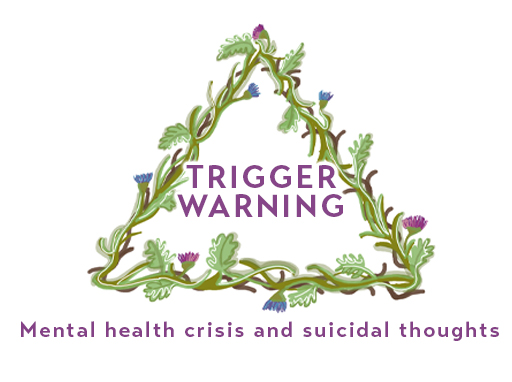4.5 Responding to a learner with suicidal thoughts
Attempting to support a learner who has suicidal thoughts or intentions can feel scary and while you are not responsible for them, being able to help to keep them ‘safe for now’, by identifying coping strategies, others they can talk to or any appropriate professional support, can make a big difference. One such professional support is SHOUT [Tip: hold Ctrl and click a link to open it in a new tab. (Hide tip)] . SHOUT offers immediate text support that is free in the UK and does not show on ‘phone records’; just text SHOUT to 85258. Watch Richard’s video from the Samaritans to better understand the importance of being able to help learners who are contemplating suicide and key ways in which this can be done.
Your own organisation might have specific guidance for dealing with a situation like this and we would encourage you to familiarise yourself with their guidance and processes. They might also provide training that will help with your understanding and confidence to deal with a crisis situation. You may well have a mental health or wellbeing team established in your organisation, or there may be trained Mental Health First Aiders who could be contacted to provide support.
There is also guidance, taken from widely accepted practice, that you could draw on when with someone who is feeling suicidal. In addition to the guidance given in Week 3 on how to conduct supportive conversations on mental health you may find the following useful:
- Ask the learner if they are having suicidal thoughts. By asking someone directly about suicide, you give them permission to tell you how they feel and let them know that they are not a burden (Samaritans, 2022). Take what they say seriously.
- Ask them if they have a plan or intent to carry out their suicidal thoughts. This is very important as a clear plan indicates that the person is at a high risk of carrying out their thoughts. You may ask questions like:
- Do you have a plan?
- When do you intend to carry out your plan?
- How do you intend to carry out your plan?
- What means do you have to carry it out?
If you identify that the learner cannot guarantee that they will be able to keep themselves safe, it is important to consider the following steps:
- Do not leave the learner alone and ideally have support from another staff member at all times.
- Ask the learner if they have a crisis contact and contact them if established.
- If not, explain to the learner that you need to get them some support and phone 999 and explain the situation. Stay with the person until their emergency contact, or emergency services, arrive.
- If the learner has left, or is uncooperative, then call the police explaining the situation and the last place you saw them.
If the learner does not have a clear plan or intent and is willing to talk to trained professionals you could help them to phone the Samaritans, a charity which offers support to anyone experiencing suicidal thoughts or in emotional distress and struggling to cope. They can be phoned for free on 116 123 and are contactable 24 hours a day, 365 days a year. If you are not UK based, then equivalent organisations in other countries, or that operate internationally, can be found here on the Samaritans website.
In the aftermath of the situation, it is important to follow any processes you have and to make appropriate notes on the learner’s record. You might also need to notify senior staff and/or your safeguarding or wellbeing team, if there is one. Remember to also take care of yourself throughout such encounters and ensure that you seek your own support following the incident. Depending on your organisational setting, either a member of the Human Resources team, or your line manager, should be able to help with a debriefing conversation and further support could be available to you through an Employee Assistance Programme.

